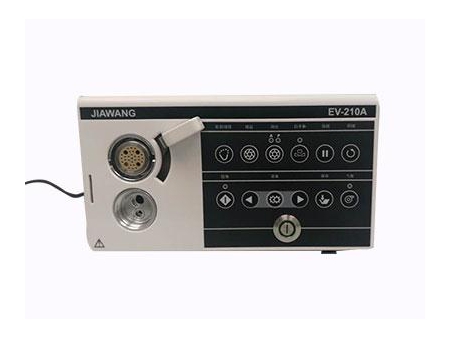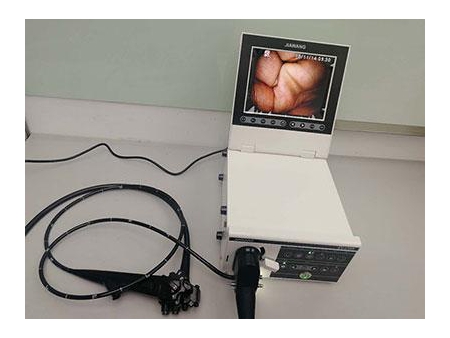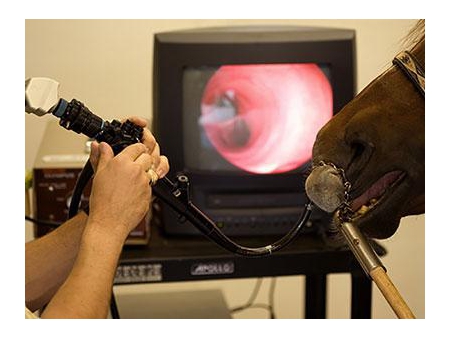Veterinary Endoscopy
This product has been discontinued and removed from our shelves.
Veterinary endoscopes are used to examine animal internal organs and body parts while they are under anesthesia with no need for surgery for a non-invasive or minimally invasive examination. These endoscopes are used to examine respiratory tracts nasal cavities, lungs, stomach, and other internal organs to quickly locate a lesion or foreign manner, and thus, make it easy to determine follow up treatment and potentially avoid costly surgeries. These endoscopes are popular in pet clinics, veterinary hospitals, and other animal care locations.
Working principleThe veterinary endoscope is equipped with a long and flexible tube to insert into the animal body for observation of internal organs. The top of the hose features a video chip and strobe light for image capturing, then sending the image to the video monitor. The veterinary endoscope can be inserted through the mouth into the stomach or lung, into the rectum to examine the colon, or into the nose to examine the nasal cavity. Endoscopic surgery allows your veterinarian to examine pet interiors without performing an open procedure surgery and carry out a minimally invasive examination as there is no incision see the inside of your pets without performing an open procedure surgery. Veterinarians receive more diagnostic information by inserting surgical instruments under a microscope to remove foreign matters, stones and tissues.
- Video output format: Y/C, DVI, RGB, AV
- Image processing function:
- White balance: automatically adjusting
- Image gain: 4-step adjustment
- Image freezing: real-time images freezing and playing back
- Lighting:
- Built-in bulb: 35W LED light
- Color temperature: 5500K-7500K
- Luminous flux: ≥800lm
- Air supply
- flow rate: ≥4L/min
- pump pressure: 30kPa-80kPa
- screen
- Panel size: 9.7 inches
- Point resolution: 1024 x 768
- Panel brightness: 350cd/m2
- Power supply
- Voltage: 220 V AC
- Frequency: 50 Hz




